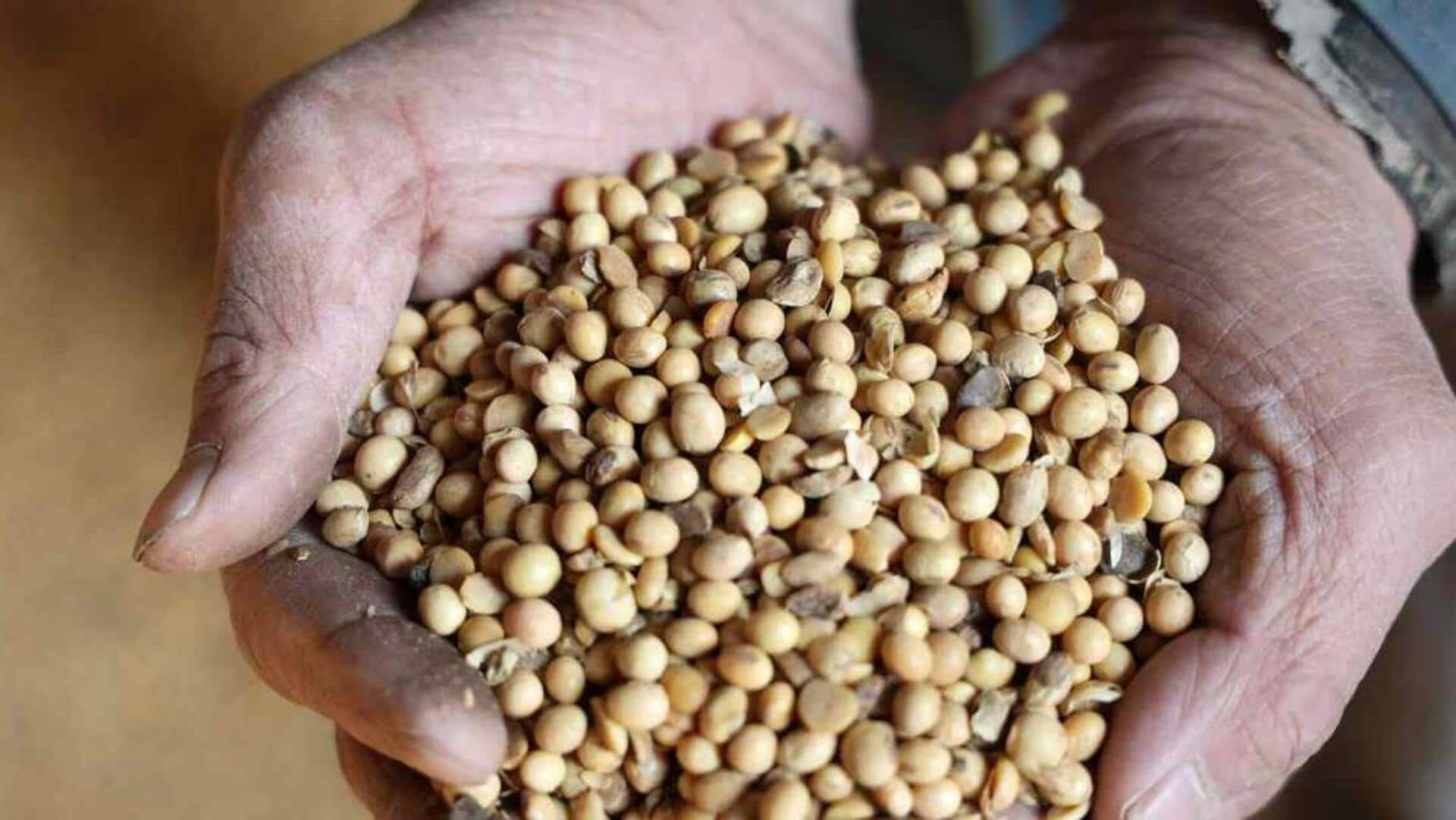
Are soybeans China and EU's secret weapon against Trump's tariffs?
What's the story
The trade war between the United States and China has reached a new high, with President Donald Trump slapping an eye-popping 125% tariff on Chinese imports.
Trump's move was in response to China retaliating against his earlier tariffs by slapping an 84% tariff on US imports.
Like China, European Union countries have also approved a set of retaliatory levies.
They approved retaliatory tariffs on $23 billion in goods in response to Trump's 25% levies on imported steel and aluminum.
Trade significance
Soya beans: US's top agricultural export
The EU's sanctions will focus on American agricultural imports—notably soybean—US aluminum, and steel products as well.
This is highly significant as soybeans make up one of America's biggest agricultural revenue sources and about 0.6% of its GDP.
The industry is valued at $124 billion in the US, which is greater than the whole economies of Kenya and Bulgaria.
And, by far the most important market is China, which buys approximately $2 billion worth of the US's soybeans, followed by EU.
Economic impact
Soya beans: A cornerstone of US agriculture
In 2023 alone, soybeans made up over $27 billion of America's annual exports.
Furthermore, there are over 500,000 soybean producers in the US, which sustains at least 223,000 full-time jobs in the industry.
But now both the EU and China have listed US soybeans on their list of goods for retaliatory tariffs.
The EU has suggested a surcharge of up to 25% on targeted items, with the first set of tariffs likely to be enforced from April 15.
Trade retaliation
Retaliatory measures: EU and China target US soya
China added another 34% on all US products on Saturday, raising tariffs on soy to 44%.
Beijing has stated that tariffs on all US items will increase by another 50% starting Thursday.
This takes the total tariff on American soybeans in China to 94%.
Al Jazeera, quoting experts, said China can afford to gamble with soya as it has been more and more reliant on Brazil for its soya imports since 2017, when the first trade battle started under Trump.
Farmer concerns
American farmers urge Trump to reconsider tariffs
American soya farmers are calling on President Trump to rethink these tariffs, as China and the EU are prime markets for their crops.
"China bought 52% of our (soybean) exports in 2024," said Scott Gerlt, chief economist at the American Soybean Association.
He said considering the volume of its purchases, China cannot be easily replaced.
"If this trade war lasts beyond the fall, you're going to see farmers go out of business," another soybean farmer David Walton told ABC.
Survival
$22 billion in aid in 2019, $46 billion in 2020
Most farmers only survived Trump's previous trade war because of billions of dollars in government aid.
He gave them more than $22 billion in aid payments in 2019 and roughly $46 billion in 2020.
Agriculture Secretary Brooke Rollins told Fox News last week that she does not anticipate the need for massive aid payments.
"But if it is, then this president has always said...he is resolute in his commitment to farmers and...we'll make sure we're ready if...that is necessary."